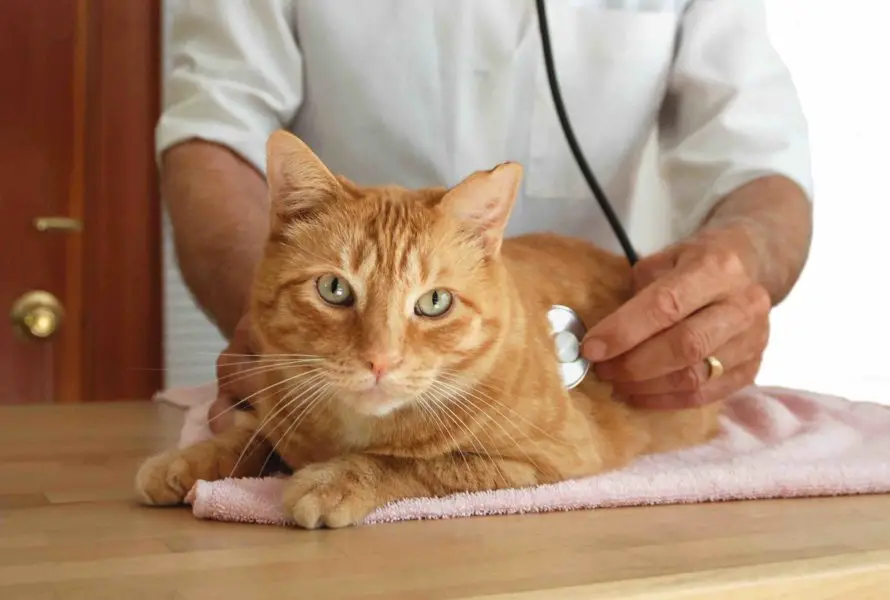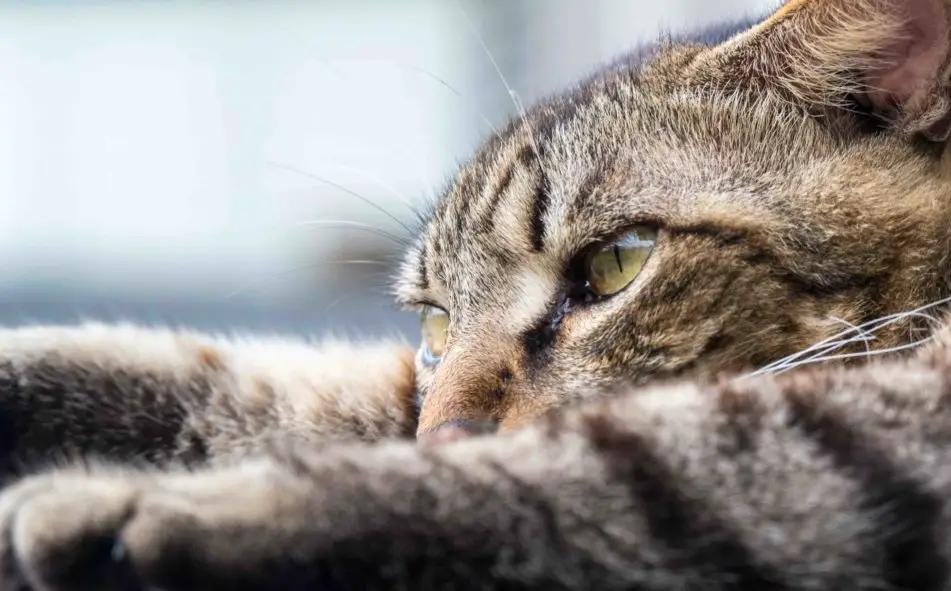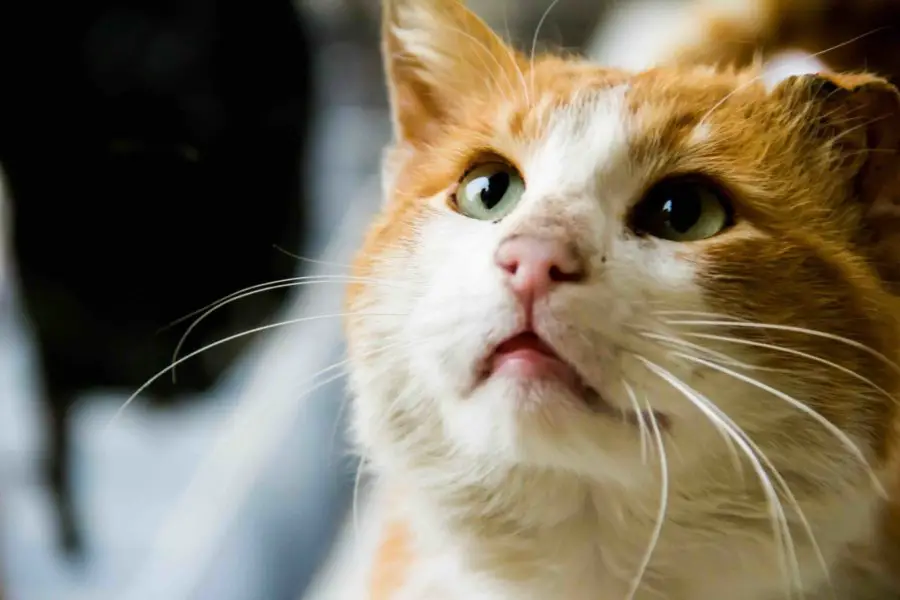November is National Adopt a Senior Pet Month, and if you’re considering adopting a senior cat, or your own cat is approaching old age, this is the perfect time to discuss how to care for them. Read on to learn about some common difficulties cats may face in their senior years, and what you can do to make the transition more comfortable for them. After all, humans aren’t the only ones concerned with aging gracefully.
Cats are considered to be seniors beginning around age 8-10 years (give or take) and seniors should see your veterinarian at least once a year as cats are extremely adept at hiding illness and pain. PetMD has a helpful list detailing seven illnesses senior cats are prone to: chronic kidney disease, heart disease, diabetes, arthritis, hyperthyroidism, dental disease and cancer.
Chronic Kidney Disease
In their old age, cats’ kidneys can become damaged. As a result, waste products are no longer filtered effectively, which causes chronic kidney disease. Symptoms include increased thirst, excessive urination, weight loss, decreased appetite and vomiting. You can help prevent or delay kidney disease by ensuring your cat’s litter box is easily accessible and encouraging them to drink plenty of water. If you have trouble getting your cat to drink, make sure they’re getting fresh water every day in a clean bowl, and you might consider getting a cat water fountain, which has proven successful for many owners. Choosing wet food over dry food will also help keep them hydrated. If your cat currently has kidney disease, there are great resources available online including Tanya’s Comprehensive Guide to Feline Chronic Kidney Disease.
Heart Disease
PetMD explains that there are different types of heart disease, but the most common in cats is a disease of the heart muscle called cardiomyopathy. No matter the type, the result of heart disease may be congestive heart failure. According to a separate article from PetMD, some symptoms of heart disease include decreased appetite, lethargy, difficulty breathing, abnormal heart sounds, bluish discoloration of foot pads and hind-limb paralysis. Heart disease is not 100 percent preventable, but you can help catch it early with regular check-ups at your vet, and always pay attention to even the slightest change in your cat’s behavior.

Diabetes
We all love to indulge our cats, but an extra treat or two can add up quickly. It’s important to be mindful of your cat’s weight, as they can quickly become overweight, putting them at risk for feline diabetes. PetMD notes that most cats with diabetes will require insulin injections. Fortunately, it is possible for cats with diabetes to reach remission, but it must be caught early and treated properly. If remission is not possible for your cat, they will require insulin injections for the remainder of their life. In addition to watching their weight, you can prevent feline diabetes by keeping your cat active and feeding them strictly feline-friendly foods.
Arthritis
Unbeknownst to you, your senior kitty may be experiencing arthritic pain. The signs of arthritis are often mistaken for signs of old age, i.e. becoming less active, sleeping more and avoiding high places. Like preventing diabetes, PetMD urges owners to watch their cat’s weight to prevent arthritis. You can probably guess why; extra weight puts extra pressure on joints. If you believe your cat has arthritis, visit your vet to find out for sure and develop a treatment plan if necessary.
Hyperthyroidism
Cats with hyperthyroidism may exhibit weight loss despite having an increased appetite, and may experience “vomiting, diarrhea, increase in water consumption and increase in urine volume.” These are all the result of too much thyroid hormone being produced. Prevention of hyperthyroidism is a bit convoluted. The Hyperthyroid Cat Centre in England has a wonderful page about cats and hyperthyroidism on their website which details the many ways you might be able to prevent the disease.

Dental Disease
While dental disease is not specific to senior cats, it is worth mentioning as it can be very painful, causing them to eat less and lose weight. The best prevention is regularly brushing their teeth, but dental disease often sets in at a young age, so it is likely too late for your senior cat. That said, you can consult with your vet on how to identify and alleviate any pain your cat may be feeling.
Cancer
Unfortunately, older cats are susceptible to cancer. The symptoms and treatment will depend on the type of cancer, and it cannot always be prevented because your cat’s genetics may leave them at a higher risk. Though the risk of cancer is out of your hands to some degree, there are still preventative measures you can take. Do your best to provide your cat with a healthy environment including a high-quality diet and a smoke-free environment. Keep your cat away from harsh chemicals, such as those found in lawn care and household cleaning products.
It is always heartbreaking to see your cat struggle as they age, but there are steps you can take at home to make their final years happy and comfortable. For many senior cats, simply jumping up on the couch can become a struggle. You can help them by buying or building a ramp or mini stair set to place in front of their favorite chair, couch, etc. They can also have difficulty bending down to reach their food and water, so you may need to get elevated cat food bowls they can reach from standing height.
The best thing you can do for your senior cat is keep their stress levels low, and be understanding of the fact that they might not be as easy to take care of as they were just a couple years ago. And please, do not be discouraged from adopting a senior cat due to their old age. Instead of thinking about the small window of time you will get to spend with them, think about how you can give them a happy, loving family to spend their final years with, which is truly all they could ask for!
Related: Use our cat age calculator to determine your cat’s age in human years.
About the Author
Dana Mack is a freelance writer and copy editor living in Illinois. She recently graduated from Columbia College Chicago, where she studied multimedia journalism. Dana enjoys arts & culture and outdoor/recreation writing, and aspires to move out West in the future. Dana was our first intern at The Catnip Times.
